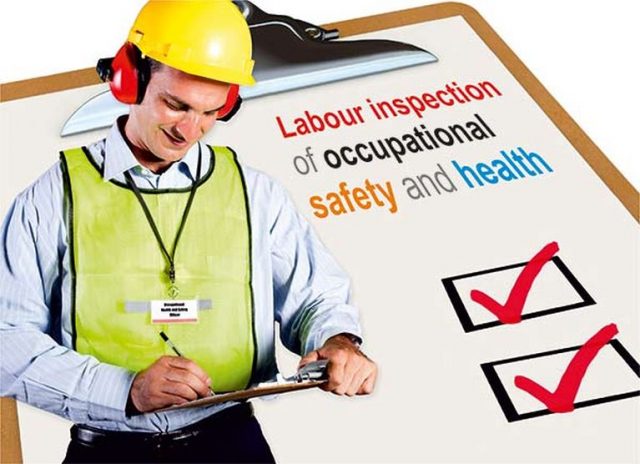The labour inspection system in Turkey plays a crucial role in enforcing labour laws and protecting the rights of workers. However, the system has faced a number of challenges in the recent decades and criticised by the International Labour Organisation (ILO).
As the governing body, the Ministry of Labour and Social Security is responsible for enforcing labour laws in Turkey. The Ministry has a number of labour inspectors who are responsible for conducting inspections at workplaces to ensure compliance with labour laws. These inspections can include checking for proper working conditions, ensuring that workers are paid the minimum wage, guaranting workers are given all the rights envisaged in the Turkish Labour Code No. 4857 and checking for compliance with occupational health and safety (OHS) regulations.
In addition to this, the Social Security Institution, as an attached body to the Ministry, is making inspections and audits in the workplaces and enterprises regarding the social security law and labour law. Social Security Institution’s inspections should be counted within the labour inspection system, due to Turkey’s diverse labour market administration system.

However, the labour inspection system in Turkey has been criticized for a chronic lack of resources in the recent decades. The number of labour inspectors is relatively small, and they are often overworked and unable to conduct as many inspections as they would like. This can make it difficult for labour laws to be effectively enforced, and for workers to receive the protections and benefits that they are entitled to.
Historically, the number of labour inspectors in Turkey has been relatively small in comparison to the size of the workforce when compared to the Organisation for Economic Cooperation and Developemnt (OECD) members. According to a report from 2016, there were around 1 thousand 100 labour inspectors in Turkey, which was responsible for inspecting over 4 million workplaces. In addition to this, as of 2022, Social Security Institution has approximately 3 thousand inspectors and auditors who are actively making inspections on the ground. This number has been reported to be inadequate to cover the entire workforce in Turkey, which extends to approximatelty 24 million. It is also reported that the number of labour inspectors has been increasing in recent years to address the need for more inspection but the exact number is not public.
In addition to this inadequate infrastructure, some criticise that there has also been a lack of political will to enforce labour laws in Turkey. This can be seen in the fact that many employers, particularly in the informal economy, are able to avoid inspections and continue to exploit workers without facing any consequences. This has led to a situation where many workers are not able to access the protections and benefits that they are entitled to under labour laws. As approximately 450 thousand work accidents happening in the country annually, even this number alone is expressing that the labour inspection in Turkey is not sufficient.
Despite these challenges, the labour inspection system in Turkey plays an crucial role in protecting the rights of workers. By enforcing labour laws and ensuring that employers comply with regulations, the system is able to provide workers with better working conditions and ensure that they are able to access the benefits and protections that they are entitled to. However, in order to be effective, the system needs more resources and political will to be able to effectively enforce labour laws.
In conclusion, the labour inspection system in Turkey is an important mechanism for protecting the rights of workers. However, it is facing significant challenges such as lack of resources and lack of political will to enforce labour laws. Addressing these challenges is crucial in order to ensure that workers are able to access the protections and benefits that they are entitled to under labour laws, and that employers comply with regulations.

